EXECUTIVE MENTAL HEALTH
TAKING A BOLD STAND
A concern for employee well-being is driving H&E Rentals’ commitment to awareness and resources.
Sponsored by:





A concern for employee well-being is driving H&E Rentals’ commitment to awareness and resources.
Sponsored by:





BY CYNTHEA CORFAH
Traditionally, U.S. corporate culture has prioritized professionalism and productivity over mental health and work-life balance. Since COVID-19 and the Great Resignation in 2021, the standard is shifting. Mental health is now a central topic in the workplace, with more companies adopting comprehensive mental health protocols, benefits and resources for their teams.
H&E Rentals, founded in Baton Rouge and now one of the largest construction equipment rental companies in the nation, started offering mental health resources, tools and training in 2021. After an employee had a mental health episode, CEO Brad Barber sought the help of Tonja Myles, a mental health advocate, certified peer recovery specialist and CEO of Set Free Indeed Ministry.
Myles collaborates with local companies, organizations, and individuals to connect them with mental health and substance abuse resources. She advises executives to foster environments where employees feel comfortable disclosing mental health and substance abuse challenges. This approach enables employees to receive necessary support, heal holistically, and return to work
equipped with a toolkit of resources.
With Myles’ insight, Barber and his company launched a 12-month marketing campaign spreading awareness about fentanyl in local magazines. They also created mandatory mental health training for employees, spoke with other companies and organizations about destigmatizing mental illness and held a leadership conference that spoke about their commitment to mental health.
“Every one of us has had points in our lives where we realize we need help,” Barber says. “It’s a complete shame that when there is help available people may be too embarrassed to seek it out or they don’t know where to go to triage the situation.”
Before connecting with Myles, Barber says he didn’t realize how prevalent mental health conditions and substance abuse were in his community.
According to the National Alliance of Mental Illness, 715,000 Louisiana adults had a mental health condition in 2021. That’s three times the entire population of Baton Rouge. More than half of these individuals did not receive treatment. Increasing awareness and providing crisis resources could improve these numbers.
Every one of us has had points in our lives where we realize we need help.” “
BRAD BARBER, CEO and director, H&E Rentals
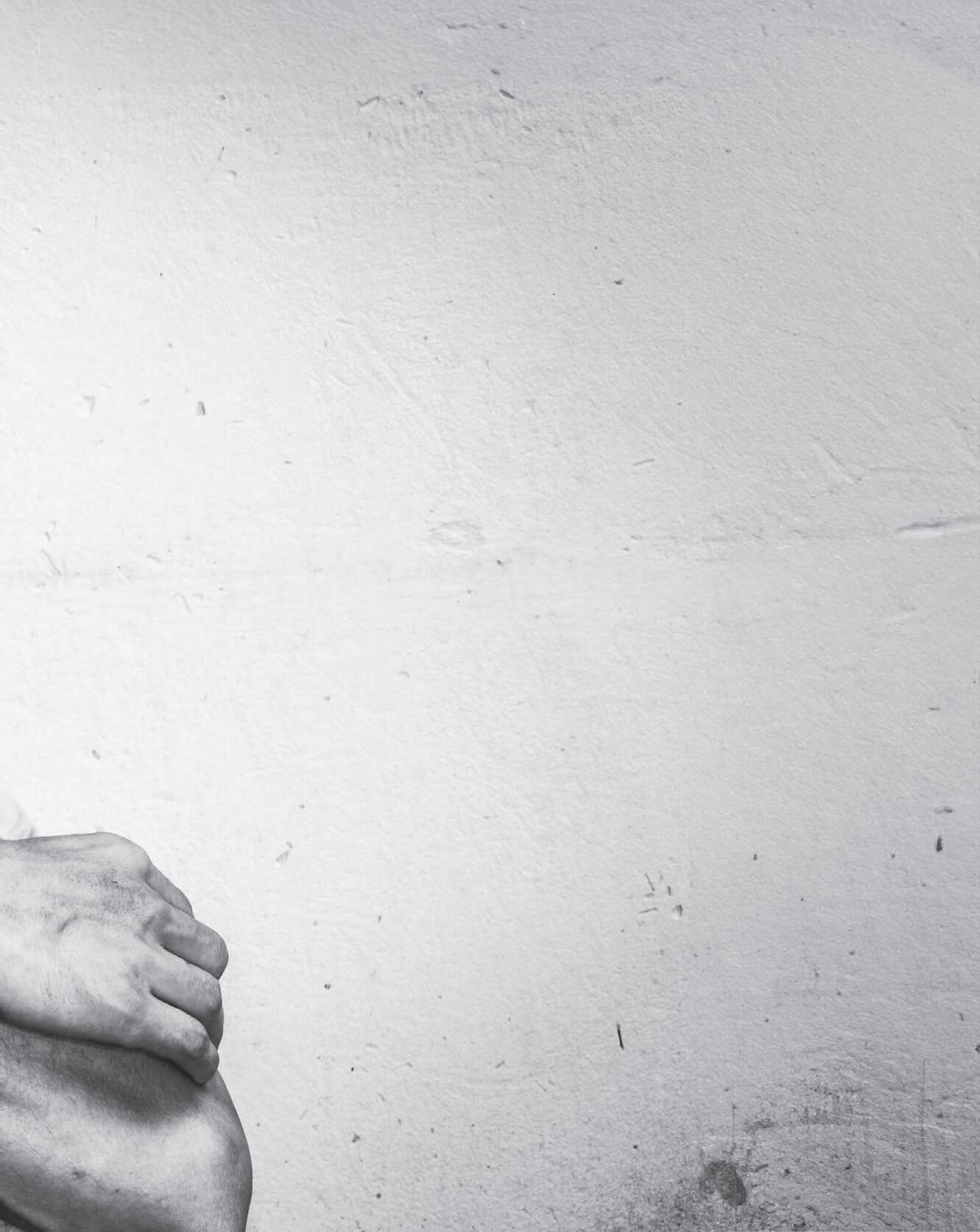

DO

With its groundbreaking in March, the Our Lady of the Lake Health Interdisciplinary Science Building at LSU will prepare the next generation of doctors, engineers, scientists and technologists to lead the future of vital industries in Louisiana like healthcare and energy. It’s just another way we’re moving Louisiana forward as Championship Health Partners.
ololrmc.com
According to the National Alliance of Mental Illness, 715,000 Louisiana adults had a mental health condition in 2021. That’s three times the entire population of Baton Rouge. More than half of these individuals did not receive treatment. Increasing awareness and providing crisis resources could improve these numbers.

The more Barber has become educated about mental illness and substance abuse, the more he has spoken up at his company and in the community.
He and Myles have spoken at schools, churches, summer youth programs, businesses, law firms and Greek organizations. They have provided groups with mental health and substance abuse training and offered Narcan in case of an emergency.
“We’re working to be a leader in removing the stigma and informing people of basic information,” Barber says. “Inform people where their resources are and make them aware of statistics, so they realize they are not the only person dealing with this issue.”
Fentanyl fatalities in Louisiana are on the rise. In 2022, nearly 65% of suspected drug-related deaths involved fentanyl, up more than 23% since 2019, according to the Louisiana Department of Health. Given fentanyl’s potency, widespread access to overdose information is crucial.
“It’s great that businesses want to thrive, but remember it is people that are the
driving force behind making businesses successful,” Myles says. “We have to invest more in the mental health of the people who do the work. Until we address it, we’re going to continue to have a crisis in our community.”
The H&E Rentals’ mental health training discusses mental health statistics, the difference between mental and physical health and warning signs of a mental health crisis. It also mentions the 988 Suicide & Crisis Lifeline, a free service that offers 24/7 call, text and chat access to trained crisis counselors.
Through the Employee Assistance Program, employees have 24/7 access to confidential counseling and support services, self-help programs and resources for their specific needs. H&E Rentals also has a community awareness website with a list of mental health resources to utilize and share.
“If you really want a good company culture, you should sincerely care enough to extend yourself to your people,” Barber advises fellow executives.
He says he has already noticed the positive impact of the mental health and
substance abuse resources his company has been sharing with the community. People on his team feel comfortable enough to share updates on their mental health and communicate with him in times of crisis. Other large companies have seen Barber and Myles’ initiatives and have requested them to speak at their offices about destigmatizing mental health conditions, substance abuse and suicidal thoughts.
The professional duo is committed to helping as many people as possible with mental health and substance abuse issues. Barber says all of H&E Rentals’ mental health training and fentanyl awareness materials are accessible at no cost for anyone who wants them. Myles is also available for speaking engagements, substance abuse advocacy and community engagement.
“Most people spend more time at work than at home, so why not make sure they can succeed in their health and life overall?” Myles asks. “Companies have a responsibility to create the best environment for their employees. Being trauma-informed is key so they can thrive.”
It’s great that businesses want to thrive, but remember it is people that are the driving force behind making businesses successful. We have to invest more in the mental health of the people who do the work.” “
TONJA MYLES, mental health advocate, certified peer recovery specialist and CEO of Set Free Indeed Ministry


The drive for success often means juggling high-stakes decisions, long hours and constant pressure. Yet in the pursuit of excellence, many leaders may find themselves becoming victims of their own success.
Curtis Chastain, MD, director of Our Lady of the Lake Physician Group Men’s Health and Executive Wellness Center, understands this paradox well.
“There’s a relationship between an individual’s success and their mental health stressors,” Dr. Chastain says. “But executives do not have to sacrifice their well-being for their careers.”
At the Men’s Health and Executive Wellness Center, Dr. Chastain and his partners—Tyler Boudreaux, MD and Oscar Shoenfelt, MD—see firsthand how the relentless push for achievement can take a toll on mental well-being, leading to stress, anxiety and even depression. They treat executives who often struggle with these hidden health issues linked to their lifestyle and work demands.
Dr. Chastain’s growing concierge practice offers personalized and comprehensive care for its members, with a focus on prevention and early detection of health problems. The prepaid model eliminates some of the friction that comes with traditional healthcare.
The result is an environment that provides a genuine sense of trust, connection, longer visits and greater access to the physicians. The clinic is

designed to put men at ease, with a home-like atmosphere where they can discuss vulnerabilities and challenges without judgment or embarrassment.
“We have the time to educate men about their conditions,” Dr. Chastain says. “We just don’t pass out medication and click computer buttons. We treat them like our friends, our clients. And they therefore feel a strong connection with us.”
Executives feeling overwhelmed don’t have to navigate these challenges alone. Dr. Chastain’s clinic offers personalized care tailored to their unique needs, including a comprehensive screening exam that looks for major underlying health concerns, such as cancer and heart disease.

“Taking care of your mental health is not just beneficial — it’s essential,” Dr. Chastain says. At Our Lady of the Lake Physician Group Men’s Health and Executive Wellness Center, executives can find the support they need to thrive both personally and professionally. Learn more at ololrmc.com/MensHealthCenter.
AUTHOR CURTIS CHASTAIN, MD Director

Dr. Chastain’s approach to enhancing executives’ mental health involves attentive listening, identifying root causes and providing tailored, practical solutions. These often start with small, actionable steps rather than immediate medication.
2 1 3 4 5
ACKNOWLEDGE THE PROBLEM: Many executives struggle to admit when they’re not OK. Giving yourself permission to feel off is the first step.
SHARE AND RELATE: Dr. Chastain often shares personal experiences or common anecdotes with his patients, helping them know they are not alone.
PRIORITIZE SLEEP: Addressing sleep deprivation significantly reduces stress and anxiety. Establishing good sleep hygiene, like limiting screen time and avoiding alcohol before bed, can lead to dramatic improvements.
EXERCISE REGULARLY: Physical activity is a powerful tool for mental well-being. Dr. Chastain encourages even exercise-averse executives to find simple, manageable routines.
LIMIT UNHEALTHY BEHAVIORS:
Identifying and reducing behaviors that contribute to mental health issues, such as excessive drinking or overworking, can make a big difference.
“I love running the lakes. There is something meditative about running outdoors that is uncommonly calming for the mind and body.”
ADRIAN OWEN JONES, Chief Growth Officer, ThreeSixtyEight


“I work out regularly, play golf occasionally, work crossword puzzles and try not to let the old man in.”
LOREN SCOTT, President, Loren C. Scott & Associates
“A round of golf does wonders for the soul.”
SCOTT SULLIVAN, Film Producer, Sulliscope

“I shifted my focus to prioritizing rest last year, and I can tell you that I’ve become a wholly different, healthier person. Saying no to things, allowing space to recharge in my schedule. It’s a game changer.”
RACHEL CANNON, Founder, Principal Interior Designer, Creative Director
“Taking my puppy, Noah, on his daily walks. It soothes me to watch him earnestly explore each day.”
DIANNA
PAYTON,
CEO,
YWCA of Greater Baton Rouge

IN THE FAST-PACED WORLD of executive leadership, prioritizing mental and physical well-being is crucial for sustained success. These Capital Region executives offer a glimpse into their personal practices and philosophies for maintaining balance and health. From daily routines to mindful strategies, these quotes reveal how top leaders navigate their high-pressure roles while staying grounded and resilient.
“I’ve worked with … a performance coach and came up with a simple system I call “Move, Pray, Learn.” Iron Tribe Fitness and a great support system at home and work make it possible.”
PETE
BUSH, CEO, Horizon Financial Group
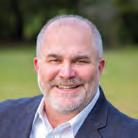
“Dancing with my kids. Spending time with family and friends. Traveling and exploring new things.”
CONSTANCE BLUNT, Medical Oncologist, Mary Bird Perkins

“Volunteering. I find I get the most diverse range of movement and never know what exactly I’ll be doing.”
MYRA RICHARDSON, Chief Development Officer, Louisiana Chamber of Commerce Foundation

“I need to work on the physical part. The mental part has a lot to do with limiting unnecessary information. I cut down drastically on consuming 24/7 news as well as social media, and it does wonders for mental health.”
BRIAN RODRIGUEZ, Founder and President, Gatorworks
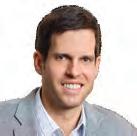
MENTAL HEALTH IS no longer just a personal issue—it’s a business imperative. For C-suite executives, understanding the impact of mental well-being on leadership and workforce performance is crucial. By addressing mental health proactively, you can not only improve your own resilience but also create a more productive and engaged workforce.

78%
Workers who don’t think their employer is doing enough to address their mental wellness at work.
Source: Mental Health in the Workplace, Monster
A 2022 Deloitte and Workplace Intelligence survey of 2,100 employees and executives found that a larger percentage of executives than their employees are feeling overwhelmed, lonely and depressed.

67%
1,914
Number of CEOs at top U.S. companies who left their jobs last year. Among those who stayed on the job, a Deloitte study found that 82% have experienced exhaustion indicative of burnout, and 96% feel their mental health has declined.

Ways employers can make a difference when it comes to helping their staff navigate mental health challenges:
• Be aware and acknowledge that people can carry an emotional load that is unique to their own circumstances. They may be experiencing heightened levels of loneliness, isolation, uncertainty, grief, and stress; and some may face additional demands, such as parents caring for children or elderly household members; and those with existing mental health or substance use challenges.
• Identify factors that are making it harder for workers to get their jobs done and determine if adjustments can be made.
• Show empathy. Ensure workers that they are not alone, their employer understands the stress they are under, there is no shame in feeling anxious, and asking for help is important. Employers can reassure employees they are open and receptive to discussions about employees’ work stress, by creating a safe and trustworthy space.
• Provide access to coping and resiliency resources, workplace and leave flexibilities without penalty, or other supportive networks and services.
12B
The number of estimated global working days lost annually to depression and anxiety, at a cost of $1 trillion per year in lost productivity.
Source: World Health Organization
5%
Percentage of organizations that provide managers with training on mental health issues, leaving them ill-prepared to support employees while maintaining their own well-being.
SOURCE: SHRM 2022 Mental Health and Belonging Report
Percentage of workers who feel they work in a toxic environment

$4
The return in improved health and productivity for every dollar U.S. employers spend addressing common mental health disorders.
Source: Occupational Safety and Health Administration


83%
Percentage of U.S. workers who say they suffer daily from workrelated stress. Of those, 76% say it impacts their personal relationships. Just 39% say that workload is the cause of the stress.
Source: The American Stress Institute
40%
Percentage of executives who say they would not openly discuss their mental health challenges with their peers.
Source: Forbes

Healthcare costs are soaring, often becoming the second highest expense for organizations after salaries. For executives focused on their teams’ health and well-being, the challenge is greater than ever. Employers need partners who bring value, help trim excess costs and work with them to achieve goals.
Enter Workforce Health Solutions from Our Lady of the Lake Health, offering specialized and comprehensive wellness services for employers.
The program’s formula is simple: manage the health, and the sickness, of patients in the highest quality and most cost-efficient setting appropriate to their needs. This means focusing on wellness and prevention, identifying risks, appropriately managing chronic conditions and maximizing access to care.
Many team members don’t have routine primary care visits and may have chronic illnesses that they aren’t aware of. Diagnosing those chronic conditions can be key to keeping team members healthy and over the course of time, decreasing the likelihood of needing a higher level of care, like emergency rooms and hospitals. Holding biometric screenings at an employer’s location can help detect those issues earlier, and help the employees develop a plan for addressing those challenges.
When an organization enrolls in Workforce Health Solutions, their participating team members receive necessary biometric screenings and personalized follow-ups that go beyond standard check-ups. This thorough approach ensures early detection and

intervention, promoting long-term health and vitality.
“Our screenings are designed to identify unknown or emerging risks early,” says Laura Davis, vice president of Workforce Health Solutions for Franciscan Missionaries of Our Lady Health System. “We’re then able to get the team members on a health management path to avoid costs and increase productivity.”
A key component of the well-being program is personalized health coaching, empowering participants to take control of their health. Experienced health coaches offer one-on-one support and tailored guidance, developing customized wellness plans that address specific needs and goals.
“From managing stress to treating chronic conditions and enhancing physical fitness, our health coaches provide strategies that fit seamlessly into busy team member lives,” Davis says. “This personal-
ized approach ensures health recommendations are practical, achievable and sustainable.”
Team members receive ongoing support and necessary follow-up to ensure they stay on track with their health goals. This proactive approach helps maintain the positive outcomes achieved during initial assessments and interventions.
The program’s other core features include musculoskeletal health services, executive health, occupational medicine, healthcare navigation, mental health support and integrated clinical services, with everything in a single medical record, helping manage the total cost of healthcare.
“Integrated care allows us a complete view into a team member’s health,” Davis said. “This enables our team to provide the most comprehensive care possible and treat the whole person, not just one concern.”
With the foundation of Franciscan Missionaries of Our Lady Health System’s network of employed providers located throughout Louisiana and Mississippi offering a wide range of medical specialties, we can ensure employees and their families will have access to the care they need, when they need it, in the most appropriate manner.
Invest in the health and well-being of your team. Discover how Workforce Health Solutions can benefit your organization at fmolhs.org/whs.

LAURA DAVIS Vice President of Workforce Health Solutions
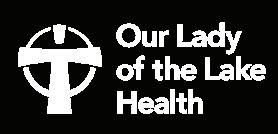

When a valuable employee is struggling with a problem — whether at work or at home — executives may wonder what they can do to help.
In many cases, an Employee Assistance Program, or EAP, can provide the answer.
These programs are increasingly common at workplaces nationwide. They’re a benefit provided to employees, giving them access to confidential resources and clinicians who can help them navigate a wide range of challenges.
EAPs can help people at every step on the corporate ladder — from those in managerial positions to their frontline employees — reduce stress, restore their worklife balance and become more productive. And that benefits everyone, says Steve Bayliss, marketing and client development director for Hidalgo Health Associates, a Louisiana-based EAP.
“We believe employees are a company’s most valuable asset representing its organization,” Bayliss says, adding that EAPs are a wise investment for any organization. “From 20 to 20,000 employees, no company is too big or small for an EAP.”
He says these programs offer crucial early intervention and can assist in overcoming emotional, behavioral, alcohol, drug, legal, financial and personal issues.
“Any issue that affects job performance is a matter of serious concern,” he says. “It is in the best interest of employers and employees that they get the help they need.”
EAPs offer an array of confidential services, including mental health support, counseling, coaching, financial guidance, legal advice and more. EAPs are designed to provide timely and effective assistance to employees, ultimately enhancing their wellbeing and job satisfaction.
Investing in an EAP isn’t just about allocating resources, Bayliss says. It’s about making the critical move to foster a healthier workforce that is more productive and engaged.
“By providing management and employees access to the support they need, you’re not only improving their wellbeing but safeguarding your organization’s financial health,” he says. “In today’s competitive landscape, where talent is the most valuable asset, an EAP is more than just a benefit. It’s a strategic necessity.”
Thinking of investing in an employee assistance program? Call Hidalgo Health Associates at 225-927-0160 or visit www.hidalgohealthassociates.com for a free quote.
Hidalgo Health Associates is a standalone EAP with more than 50 years in business and a nationwide network of clinicians to assist clients.
EAPs are workplace programs that help employees deal with personal problems that might adversely impact their work performance, health and wellbeing. Steve Bayliss offers some statistics and key points about EAPs:
As of recent surveys, approximately 77% of U.S. employers offer an EAP to their employees.
Studies have shown that EAPs can lead to improvements in employee productivity, reductions in absenteeism and overall better mental health and wellbeing.
Employers can see a return on investment (ROI) ranging from $3 to $10 for every $1 spent on EAP services due to reduced absenteeism, increased productivity and lower healthcare costs.
Employees who use EAPs often report significant reductions in stress and improvements in mental health. For instance, some studies have shown a 69% improvement in productivity and a 61% improvement in overall work functioning after EAP interventions.
Employees using EAPs report productivity gains, with one study noting a 22.8% increase in work performance after using EAP services.
Studies have reported that EAPs can provide a ROI between 3-to-1 and 10-to-1 by improving employee health and reducing turnover.
Successful executives know the price of success and the definition of sacrifice. You have worked tirelessly to achieve this level of professional success — long hours, intense competition, mental energy above that of anyone else in the office.
And yet you still struggle. Maybe it’s a lack of joy or excitement about the work you’re doing. Maybe it’s a low tolerance for frustration, leaving you feeling irritable and lashing out at those around you. Maybe it’s a health concern that keeps getting pushed down on the to-do list.
Unfortunately, you are not alone.
76%
of C-Suite executives feel unable to enforce start and stop times at work.
73%
of C-Suite executives report feeling unable to take time off or disconnect.
MORE THAN 70%
of C-Suite executives report having difficulty exercising or getting at least six hours of sleep.
Divorce rates are higher in corporate executives than other professionals. This applies to both men and women. In fact, research found that married women are twice as likely to be divorced in the three years following a promotion compared to men.
Why are successful, educated, hardworking professionals failing in the relationship arena?
“Corporate success often comes with a price tag,” says Ally Bayard, director of Refinery Counseling Center. “High levels of stress, isolation due to demands of work, long periods away from home and neglected household responsibilities and emotional connections are all daily realities for many executives.”
Relationship failure shouldn’t be a requirement for

professional success. Bayard offers three strategies to help executives beat the statistics:
TECH TIMEOUTS. Leadership roles look different now than they did 25 years ago, mostly due to technology. Long gone are the days of paper calendars and beepers. If someone wants to get in touch with you now, they can likely connect with you immediately via your smartwatch, cellphone, email, video call, tablet and even vehicle. This constant, on-demand access creates stress in a way that executives have not had to manage before. “When working with executives, the first strategy I have them implement is a tech timeout,” Bayard says, “even if we start with just 30 minutes a day disconnected from all technology and access points.”
CONNECTION. As a clinician who works closely with many high-level executives, from pastors to politicians, Bayard sees clear benefits in many of her clients when they reconnect with friends and family. “Learn your spouse’s love language. Put your kids’ events on your work calendar. Ask your partner what they think about

an investment or a hire,” she suggests. “Business and family don’t have to be kept isolated or compartmentalized. If your career is a large part of who you are, share that with the people who care about you.”
Consider this interesting ratio: Divorce is less likely when the executive earns 60% of the income and does 40% of housework, Bayard says. That likely isn’t realistic for those in leadership roles, but when it comes to participating in the household, a little bit goes a long way. “Selecting one or two household responsibilities to maintain not only speaks value to your spouse and family, but also organically maintains connection between you and your home,” Bayard says.
In some cases, counseling can make a critical difference in navigating the challenges of life in the C-Suite. Refinery Counseling Center has a team of trained, licensed professionals who can help. For information, go to www.refinerycounselingcenter. com or call 225-277-6454.
AUTHOR ALLY BAYARD, LPC-S, CAS Director of Refinery Counseling Center


executives, a
health provider
‘get you and your employees back to your best’
Whether it’s a stressful project, a difficult client or a busy schedule, high-performing professionals are used to powering through challenges. But what happens when it all becomes too much?
Burnout from workplace demands as well as personal stressors — like a death in the family or divorce — can take star executives and employees alike from the top of their game to a shell of their former selves. It can be tough — especially for professionals accustomed to handling everything themselves — to recognize when it’s time to seek assistance. But Dr. Majid Khan, medical director of Elemental Health, warns against the temptation to keep on keeping on.
“There’s a stigma toward mental health,” Khan says. “There’s an idea that when something bad happens, you pull yourself up by the bootstraps, you keep working to hold things together for your workplace, your partner, your mortgage. There’s an immense pressure that, regardless of what happens, you keep moving forward.”
Burnout, stress, depression and other mental health concerns don’t mean someone is weak or lazy, Khan says. These issues should be taken seriously, as they impact individuals and entire workplaces. Organizations rely on leaders in C-Suite roles to guide operations; they need to be capable of making good decisions. Good mental health is important for employees, too.
“Maybe they have dedicated a decade or more of service to the company,” Khan says. “Wouldn’t an employer want to have that normally high-functioning person back?”
An outpatient provider like Elemental Health can help restore a sense of balance — and top-notch job performance.
“It’s to get you back to your best,” Khan says. “You’ve gotten to that position by having been good at balancing everything in your life at some point. You are excellent at what you do, but you do everything else because you’ve built a life — and now something’s off because you’re not able to balance. You’re doing the job so you can keep the rest of your life going — yet it’s lost all its color and flavor. That’s not what life is supposed to be.”
Khan says many people can benefit from the services of a mental health care provider. Some common signs indicating a need for help include:
• Prioritizing work and doing the bare minimum in other aspects of life.
• Neglecting responsibilities, relationships and activities at home.
• No longer participating in hobbies.
• Considering quitting a job that normally is enjoyable and fulfilling.
“If someone’s not sure, if they’re even asking themselves the question of whether this can help,” Khan says, “in most cases, the answer is yes.”
Some people who have seen a therapist or taken antidepressants before with minimal results may be reluctant to try another approach to improving their mental health. But Khan encourages them to give a multifaceted strategy like Elemental Health’s outpatient program a chance.

People can stop by Elemental Health for a tour, and if they want to enter as a new patient, an assessment is scheduled within a couple of days. Within the week, Khan meets with the patient to go over medications, if required.
“The fact that we can immediately get started in a time of personal crisis for someone is significant,” Khan says.
Elemental Health’s program takes about eight weeks for most patients. Khan and his team employ a unique mix of therapeutic modalities, providing six forms of therapy each week, such as cognitive behavior therapy, dialectical behavior therapy, family systems, art therapy and more. Khan calls it “a college course of therapy.” Plus, evidence-based medication management is offered.
“When someone is facing incapacitation due to their emotions, it requires a high level of focused, coordinated therapy and an appropriate amount of medication assistance,” Khan says. “They walk out of here in eight weeks in a much, much stronger position.”
He says the program works in conjunction with a person’s existing therapist, psychiatrist and primary care providers, taking care of all medical leave paperwork while the patient is taking time to prioritize their mental wellbeing.
Elemental Health is one of the only mental health providers of its kind in the Baton Rouge area and accepts most commercial insurance plans. For information, visit elementalhealthbr.com or call 225-218-6774.
AUTHOR MAJID KHAN, MD
is the Medical Director and Psychiatrist of Elemental Health, as well as of Regions Behavioral Hospital, a 24-bed acute inpatient psychiatric unit.

As a business owner in the Baton Rouge area, Scott Foust understands the importance of maintaining peak mental and physical health to keep up with the demands of his job. Despite sticking to a healthy diet and exercising regularly, he faced persistent gut issues, fatigue and sluggishness.
Foust turned to SYNC Life, a local integrative medicine practice, for help. Founder Angie Huff, a Doctor of Pharmacy, has worked with many businesspeople like Foust who struggle with burnout —a growing concern in the corporate world.

“High-level professionals often work long hours under immense pressure, leading to physical, emotional and mental exhaustion,” Huff says. “Recognizing the signs and symptoms of burnout is crucial for timely intervention and management.”
COMMON INDICATORS OF BURNOUT MIGHT INCLUDE:
• Physical symptoms such as headaches, muscle tension, gastrointestinal issues, brain fog, low libido, difficulty sleeping and frequent illnesses.
• Chronic fatigue, or persistent tiredness that doesn’t improve with rest.
• Decreased performance, which can mean a decline in productivity and the quality of work.
• Cynicism and detachment, or feeling disconnected from work and colleagues.
• Mood changes like increased irritability, anxiety or depression.
• Lack of motivation, which can look like a loss of enthusiasm for work or having difficulty starting tasks.
“Traditional healthcare often falls short in addressing the complex needs of executives,” Huff says. “A comprehensive integrative wellness program like
those offered at SYNC Life provides a holistic approach that considers the interconnectedness of physical, mental and emotional health.” These programs are essential for:
• Preventing burnout. By addressing root causes rather than just symptoms, integrative health programs help prevent burnout before it becomes a significant issue.
• Enhancing performance. Optimizing health leads to improved cognitive function, better decision-making and increased productivity.
• Promoting long-term health. Comprehensive health programs support overall health, reducing the risk of chronic diseases and promoting longevity.
SYNC Life’s integrative health programs include advanced medical assessments, testing more than 124 biomarkers such as hormones, cellular micronutrient levels, inflammatory markers and in-depth cardiovascular and metabolic markers to create personalized plans.
SYNC Life offers an exclusive Executive Health Plan Membership designed to provide ongoing support and personalized care for busy professionals.
Membership benefits include:
• Comprehensive wellness plans. Receive science-backed testing, personalized health plans and regular progress tracking through one-on-one consultations, three-month and six-month check-ins and annual appointments to optimize your health and maintain peak performance throughout the year.
• Access to innovative therapies. These include bio-identical hormone replacement, NAD infusions, IV nutrient therapy, HBOT and peptide therapy.
• Innovative diagnostic testing such as

early cancer detection testing, gut microbiome testing, methylation testing, genetic testing and mycotoxin and heavy metal testing.
• Exclusive workshops and seminars. Gain access to special events focused on executive health and performance.
• Discounts on supplements and services. Receive exclusive discounts on pharmaceutical-grade supplements and wellness services.
• Priority access to services. Enjoy priority scheduling for integrative wellness services.
For Foust, SYNC Life has helped him achieve his health goals and improve his work performance.
“I’ve effortlessly lost weight, my mood and energy levels have dramatically improved and my cognitive function and memory are sharper than ever,” he says. “These changes have not only enhanced my personal wellbeing but have also significantly boosted my professional performance. Investing in SYNC’s program is more than a commitment to personal health — it’s a strategic move for any executive.”
Visit www.synclife.health or call 225-425-7962 to learn more about SYNC Life’s Executive Health Plan Membership and other services — and how they can help your team thrive.

AUTHOR ANGIE HUFF, PHARM D Founder & Wellness Visionary


BUILDING THE FUTURE TOGETHER!
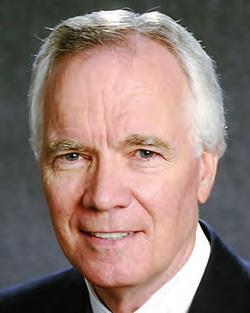
Doors open at 7:00 AM
Starts at 8:00 AM (ticket required)
sponsored by:


Doors open at 11:15 AM
Starts at 11:45 AM (ticket required)
PURCHASE YOUR TICKETS TODAY.



